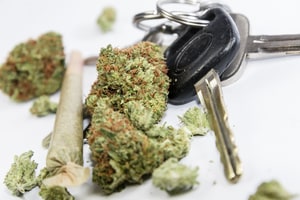Public Intoxication Weed, In recent years, the debate surrounding the legalization of cannabis has intensified, especially as more states and countries embrace its use for recreational and medical purposes. One of the key concerns that often arises in these discussions is the issue of public intoxication weed. While cannabis is becoming more widely accepted, its use in public spaces is still a controversial subject in many places. Understanding the legal implications of public intoxication related to weed is essential for users and authorities alike.
What is Public Intoxication?
Public intoxication is generally defined as being under the influence of a substance (alcohol, drugs, or otherwise) to the extent that it impairs your ability to function properly in public. In many jurisdictions, public intoxication is considered a criminal offense. It can result in fines, arrest, or other legal penalties, depending on the severity of the situation and the local laws.
When it comes to weed, the issue of public intoxication becomes more complex due to the varying legal status of cannabis. In regions where cannabis is legal, the rules about where and how it can be consumed differ significantly. Some places allow private use but strictly prohibit smoking or vaping in public areas, while others have more lenient regulations.
Legal Considerations Surrounding Public Intoxication with Weed
- Cannabis Legalization: In states or countries where cannabis has been legalized, public consumption remains illegal in many cases. Even in places like California, Colorado, and Canada, cannabis consumption is restricted to private residences or designated areas. Public intoxication related to cannabis in these places may result in fines or citations.
- Zero-Tolerance Policies: In some areas, even if cannabis is legalized for recreational use, there is a zero-tolerance policy for public intoxication. This means that consuming cannabis in public spaces—whether through smoking, vaping, or edibles—can lead to legal consequences. The logic behind these policies is that public spaces should remain free from any impairment that may affect the safety and comfort of others.
- Effects of Cannabis Use on Behavior: Unlike alcohol, which often leads to aggressive or reckless behavior, cannabis can have more subtle effects on a person’s ability to function in public. However, it can still impair judgment, coordination, and reaction time, which is why public consumption is restricted in some places. If law enforcement determines that someone is impaired in public due to cannabis use, they may issue a citation for public intoxication or other related offenses, such as disorderly conduct.
- Medical Marijuana Users: Medical marijuana users may have some leeway when it comes to public consumption, especially if they have a valid prescription. However, they are generally still subject to laws prohibiting smoking or vaping in public areas. Medical users need to be cautious and aware of local laws regarding public use to avoid legal issues.
- The Role of Local Law Enforcement: The enforcement of public intoxication weed laws varies greatly by jurisdiction. In some cities, police may issue warnings for minor infractions, while in others, they may take a more stringent approach, issuing fines or making arrests. The enforcement practices can be influenced by local attitudes toward cannabis use and the overall prevalence of cannabis use in the community.
Consequences of Public Intoxication with Weed
The legal consequences of public intoxication related to weed can range from a simple fine to arrest, depending on the location and the severity of the situation. Common penalties include:
- Fines: Many areas impose fines for consuming cannabis in public. These fines can range from small amounts to hundreds of dollars, depending on the jurisdiction.
- Arrest: In extreme cases, particularly if the individual is causing a disturbance or behaving erratically, police may arrest someone for public intoxication. While this is rare for casual users, it can happen if someone is visibly impaired or uncooperative with law enforcement.
- Probation or Community Service: In some cases, individuals who are convicted of public intoxication related to cannabis use may be sentenced to probation or community service, especially if it’s a first offense.
- Criminal Record: In regions with strict cannabis laws, being charged with public intoxication could lead to a criminal record, which may have long-term consequences for employment, travel, and other aspects of life.
Conclusion
As cannabis continues to be legalized in many parts of the world, the issue of public intoxication weed remains a key legal and social concern. While personal use is becoming more widely accepted, the rules surrounding public consumption of cannabis are still evolving. Users must remain informed about local laws to avoid legal trouble, as the consequences of public intoxication can be significant. Whether cannabis is legal or not, individuals should always be mindful of the environment they are in and respect the regulations that are in place to ensure public safety and comfort.
You Might Also Like These:



